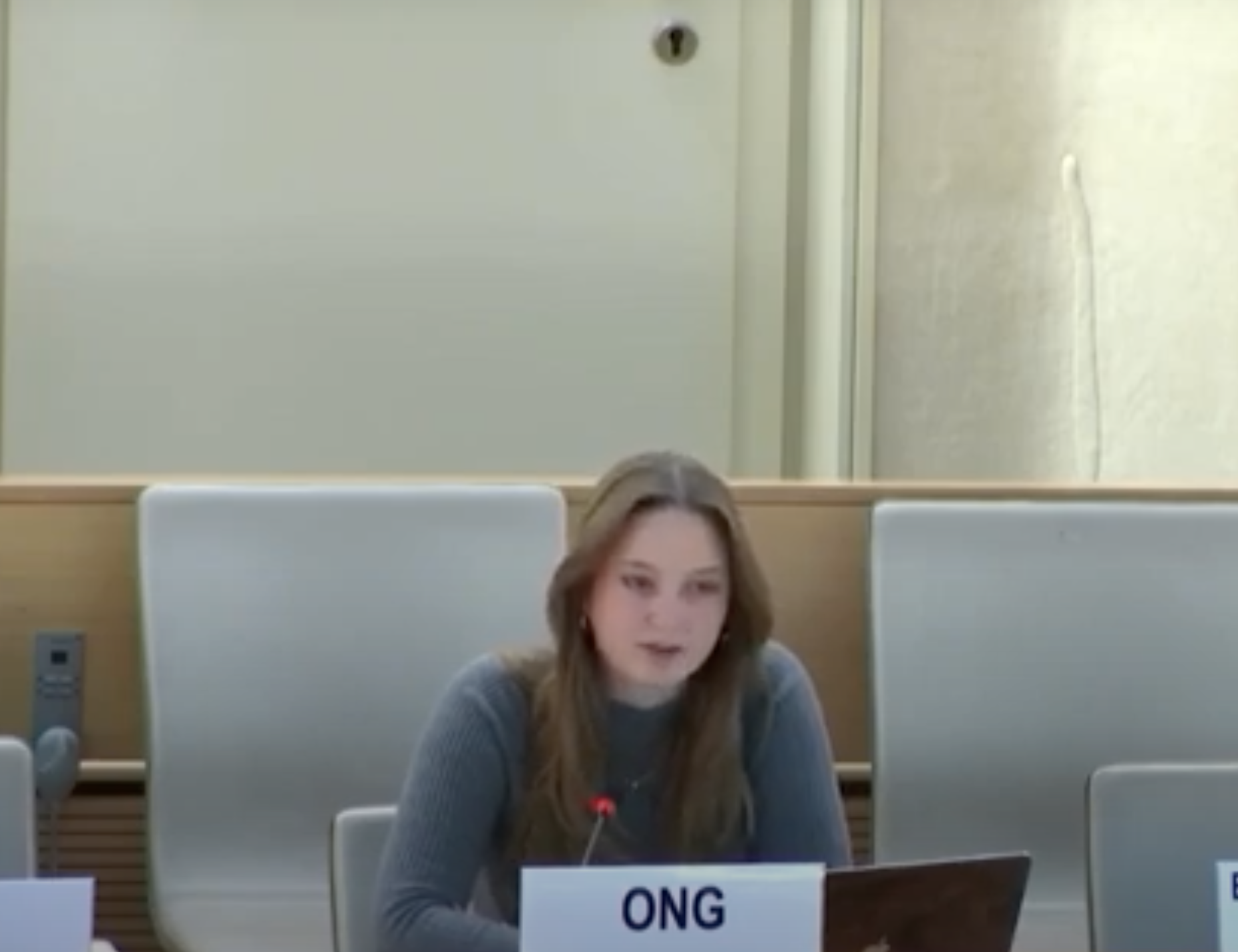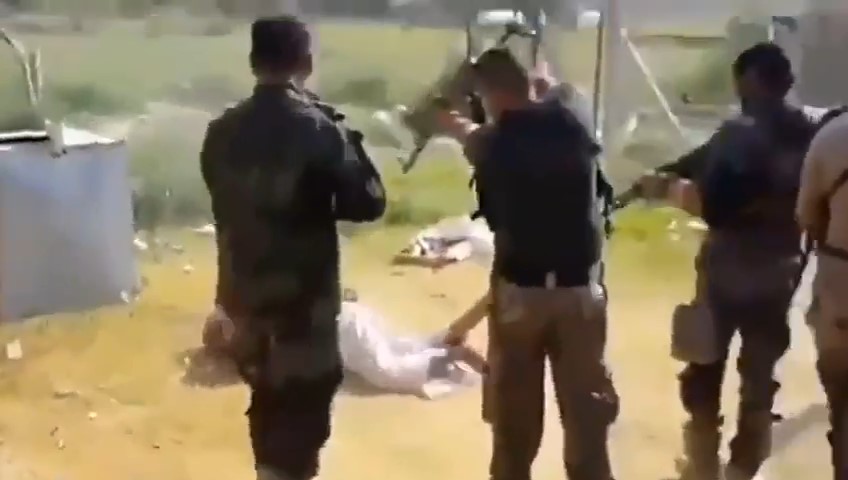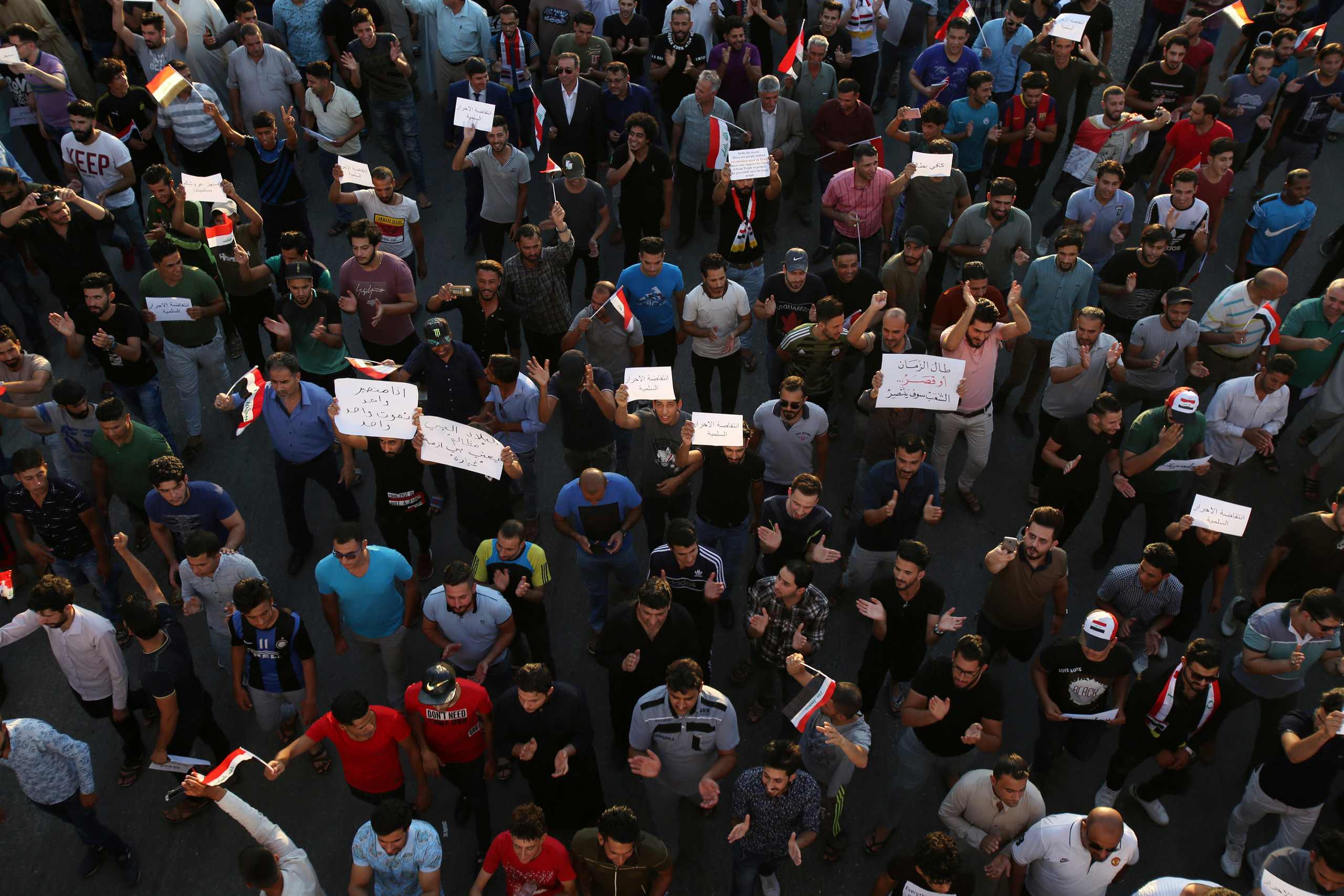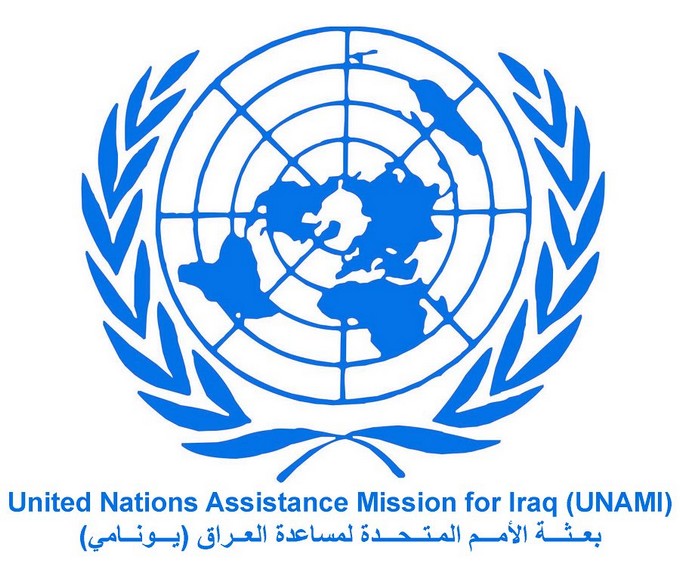GICJ on UNAMI’s most recent report:
True Justice in Iraq Will only be Achieved After Dismantling the Militias
GICJ welcomes with great ambivalence UNAMI’s most recent report, “Demonstration in Iraq, 3rd update”, published on 23 May 2020. Many aspects of the report demonstrate UNAMI’s willingness to achieve accountability for the human rights violations that occurred during the ongoing protests in Iraq. Yet much of its rhetoric remains too deferential to the capacity of the Iraqi government to investigate and bring to justice the perpetrators of such abuses.

We acknowledge that some of UNAMI’s recommendations are specific, such as clarifying the command structure of the country’s security apparatus and disarming groups operating outside the official command structure. Much is needed to control militias which are enjoying far too much leeway. However, UNAMI is not focusing on the core of the problem: the influence of militias in the Iraq political landscape. Political parties are beholden to militias and this influences the legislative and judicial branches of the Iraqi government. True justice will only be achieved by a government that is free of the influence of the militias.
The report regrettably makes an erroneous conclusion concerning the role of the Iraqi government’s security forces in the abuses. It nonchalantly remarks that the evidence did “not suggest the involvement of Iraqi Security Forces” then proceeds to observe that “33 individuals were arrested and detained by Iraqi Security Forces and did not or could not contact their families during their detention”. This is contradiction is confusing; clearly, the Iraqi Security Forces are implicated in these 33 violations.
This erroneous conclusion is based on the observation that “none of those interviewed were referred to an investigative judge or had access to lawyers or families”, thus precluding government involvement. This logic is inaccurate to say the least. In all the past years, corrupt Iraqi government authorities have notoriously engaged in extra-judicial and secret arrests.
Lastly, the report is too quick to shake off any evidence of government participation in the abuses through acts of omission. Not only has GICJ reviewed evidence of militias beating demonstrators in front of security forces, the report itself details the government’s open reluctance to investigate abductions and locate the victims, even though families have submitted official complaints.
As such GICJ renews its appeal to UNAMI, and the United Nations at large, to take a firmer stance towards the Government of Iraq, to rethink and dispense with its deferential approach as the tone of the report demonstrates an appeasement of the Iraqi government without sufficient condemnation of their actions and deliberate inactions. Misleading statements such as “UNAMI welcomes the commitment of the new Government to establishing the number and circumstances of casualties arising from violence linked to demonstrations and publishes this report in support of Government efforts towards accountability” are irresponsible when the facts revealed in the very same report clearly demonstrates a laxity and an obvious failure by the Iraqi government to take reasonable steps towards accountability or to sufficiently address (in any form) the serious issues highlighted in the report.
The key takeaway that GICJ derives from the UNAMI report by reading between the lines of the unwarranted “niceties” is that human rights violations in Iraq continues under entrenched impunity with little to no effort by the Iraqi government to ensure accountability and justice for gross violations. GICJ, therefore, repeats its call for independent action such as an International Tribunal to prosecute human rights violations in Iraq since 2003. Such international action is the only way to achieve true justice in Iraq.
Reacción de la GICJ al informe más reciente de la UNAMI:
La Verdadera Justicia En Iraq Sólo Se Logrará Después De Desmantelar Las Milicias
La GICJ recibe con gran ambivalencia el informe más reciente de la UNAMI, titulado "Manifestación en el Iraq, 3ª actualización", y publicado el 23 de mayo de 2020. Varios aspectos del informe demuestran la intención de la UNAMI de lograr que se rindan cuentas por las violaciones de los derechos humanos que se produjeron durante las protestas en el Iraq, que siguen en marcha.Sin embargo, gran parte de su retórica sigue siendodeferente al Gobierno iraquí y su capacidad de investigar y traer ante la justicia a los autores de estos abusos.
Reconocemos la especificidadde algunas de las recomendaciones de la UNAMI, como la de aclarar la estructura de mando del aparato de seguridad del país y consecuentemente desarmar a los grupos que operan fuera de esta estructura de mando oficial.Es mucho lo que se necesita hacer para controlar a las milicias que, actualmente, están gozando de un margen de maniobra demasiado amplio.Sin embargo, la UNAMI no se está enfocando en la verdadera raíz del problema: la influencia de las milicias en el sistema político del Iraq. Los partidos políticos tienen una deuda con las milicias y esto influye como se conducen los poderes legislativo y judicial del gobierno iraquí. Por lo tanto, la verdadera justicia sólo se logrará cuando el gobiernoesté libre de la influencia de las milicias.
Lamentablemente, el informe llega a una conclusión errónea sobre el papel de las fuerzas de seguridad del gobierno iraquí en los abusos. Remarca, con indiferencia, que la evidencia disponible "no indica la participación de las fuerzas de seguridad iraquíes" y luego procede a observar que "33 personas fueron arrestadas y detenidas por las fuerzas de seguridad iraquíes y no se pusieron – o no pudieron ponerse – en contacto con sus familias durante su detención". Esta contradicción es confusa ya que es evidente que las Fuerzas de Seguridad iraquíes están implicadas en estas 33 violaciones.
Esta conclusión errónea se basa en la observación de que "ninguno de los entrevistados fue remitido a un juez de instrucción y ninguno tuvo acceso a abogados o [a sus respectivas] familias", lo que impidió la participación del Gobierno. Esta lógica es incorrecta. En todos los años pasados, las autoridades gubernamentales iraquíes corruptas han participado en arrestos extrajudiciales y secretos.
Finalmente, el informe se apresura a descartar toda prueba de participación del gobierno en los abusos a través de actos de omisión. Mas allá de la evidencia examinada por la GICJ que indica que las milicias han golpeado a los manifestantes frente a las fuerzas de seguridad, el propio informe detalla la visiblereticencia del gobierno de investigar los secuestros y de localizar a las víctimas – a pesar de que las familias hayan presentado quejas oficiales.












